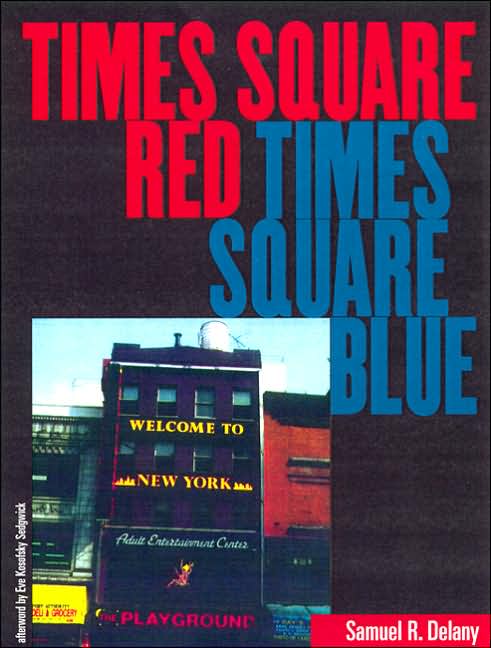Times Square Red, Times Square Blue is a very odd book indeed. It’s two linked essays about the destruction of New York’s old Times Square and the loss of its gay porn cinemas. Very few people would see losing an area consisting largely of porn cinemas as a bad thing, but Delany does, and he makes a consistently interesting case for their existence as a positive thing. It isn’t always comfortable reading, but it’s certainly thought-provoking. The world does not contain much examination of the role of casual sex in a culture, and here Delany not only examines it but links it to theories about urban planning, about contacts vs networking, and about formal and informal relationships.
I first read this book because I am a completist and will read any prose Samuel Delany writes that doesn’t make me physically ill. I read it again now because I was thinking about the ways cities work. If you write science fiction or fantasy and you’re interested in putting together a city, this is vital.
Whenever I read any of Delany’s recent non-fiction or mainstream fiction, I enjoy it but wish he’d come back to writing SF. I understand from his Locus interview that his next book will be SF. I can hardly wait. The thing is that he’s an interesting observer, his speculations are fascinating, I’m interested when he writes about himself, his city, or people in the real world, but I enjoy his writing best when it’s set in a matrix of science fiction—his science fictional worlds are the best.
Times Square Red, Times Square Blue is mostly fascinating because Delany is talking about things people mostly avoid talking about. Sex often gets talked about in very conventional ways. Here he’s talking about encounters in a sexual context—people he met in and around the cinemas who may have been hustlers or just people, with whom he may have had sex or just conversation. The boundaries between kinds of encounters are blurred. At one moment he’s talking about Jane Jacobs’s theories about the way cities work and mothers meeting in the park, at the next he’s talking about how this parallels the social expectations of sex and conversation in the cinemas.
This book is probably an interesting social memoir for gay men who used to go those cinemas or others like them in other places. It’s not just AIDS that’s ended their era but changing expectations, which Delany deplores. He talks about both AIDS and expectations, and most of all about sex and community and the way sex and desire shape community—and of course, the way revulsion from certain kinds of sex are shaping the city. This is an elegy for a place and an era that were ending as he wrote.
For me it’s a report from something I’ve never encountered. If you’re a straight woman there isn’t anything remotely like this—so it’s interesting and also weird. Delany does talk about ways of setting up a situation like that for women, where sex wouldn’t be a commodity but a set of quirks you could safely match. In the utopian Triton, it’s like that for everyone. I don’t know if I’d like it—but I don’t know. I’ve never had the chance to find out, and I doubt I ever will.
Real cities have areas like this, and cities in SF and fantasy very often lack them, which is something worth thinking about, whether or not we want to explicitly send our characters there.
Jo Walton is a science fiction and fantasy writer. She’s published eight novels, most recently Half a Crown and Lifelode, and two poetry collections. She reads a lot, and blogs about it here regularly. She comes from Wales but lives in Montreal where the food and books are more varied.










